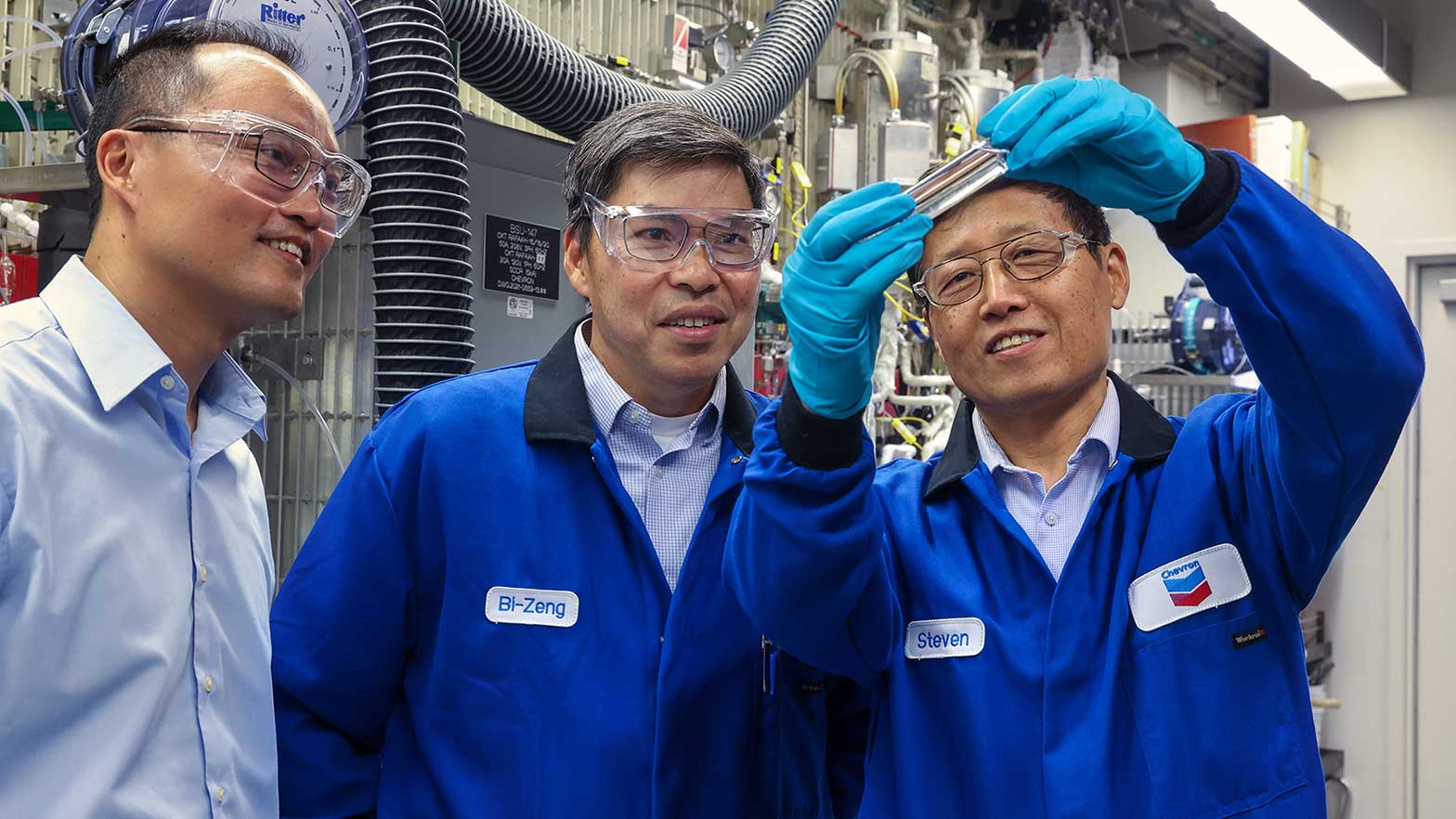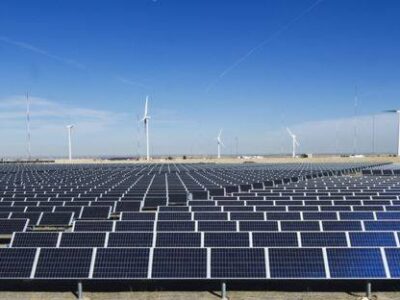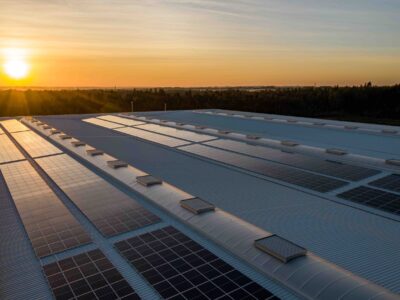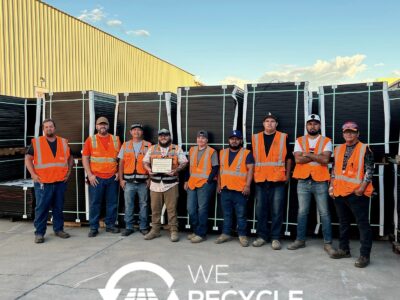In September, Energy giant Chevron Corp announced it had purchased the world’s largest hydrogen storage facility plant, the Advanced Clean Energy Storage project, in Delta, UT. The facility combines 220 megawatts of alkaline electrolysis with two massive 4.5 million-barrel salt caverns to store clean hydrogen.
The majority-stake acquisition is one of Chevron’s many moves to reduce its emissions and expand the use of lower-carbon fuels such as hydrogen. The company plans to spend upwards of $1.25 billion annually over the next five years to reduce its carbon footprint.
“As we continue to pursue lower carbon energy solutions, we are excited to move forward with the Advanced Clean Energy Storage hydrogen project, through our acquisition of Magnum Development and partnership with Mitsubishi Power, to build on Chevron’s 75-year history in Utah,” said Austin Knight, vice president, Hydrogen, Chevron New Energies. “We seek to leverage the unique strengths of each partner to develop a large-scale, hydrogen platform that provides affordable, reliable, ever-cleaner energy and helps our customers achieve their lower carbon goals.”

Photo Courtesy Chevron
Last year, the Delta project received the first clean energy loan from the U.S. Department of Energy for more than $504 million. The funding comes as high infrastructure, transportation, and production costs have limited the use of hydrogen. It has a distinct advantage in that it can be used to store energy, which can then be used as needed based on demand and seasonal needs in an area.
Additionally, hydrogen releases water vapor when used, rather than the polluting chemicals released by burning traditional fossil fuels. The Advanced Clean Energy Storage plant will capture all excess renewable energy when it is most abundant and store it as hydrogen in the salt caverns. It can then be used on demand for the Intermountain Power Agency’s Renewed Project.
Chevron plans to use the stored hydrogen across industrial, power, and transportation sectors where greenhouse gas emissions have been difficult to reduce.
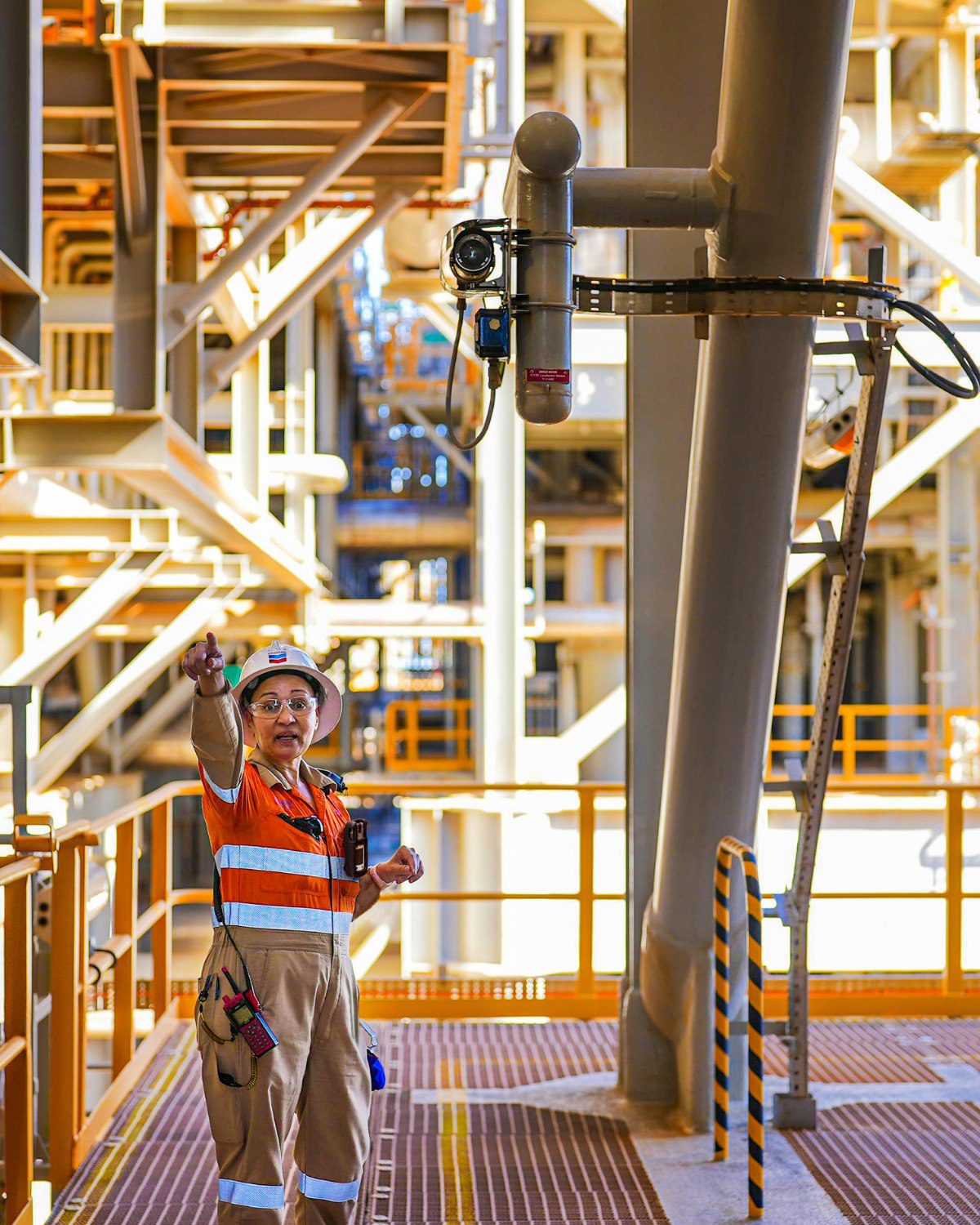
Photo Courtesy Chevron
“… [T]he development of our hydrogen project will not only have significant benefits to the western U.S. population, but it will also serve as a blueprint for future hydrogen opportunities,” said Michael Ducker, Mitsubishi Power’s senior vice president of hydrogen infrastructure. “With Chevron New Energies’ involvement, we expect to expand hydrogen supply more quickly. Together, we are investing in the future of hydrogen, helping to create a viable, cost-competitive market for emerging lower carbon solutions.”
Utah — buoyed by numerous new clean energy jobs related to the Delta site — is excited to step on the global stage as a leader in innovative and sustainable hydrogen fuel solutions.

Photo Courtesy Chevron
“People look to Utah as the place where we work together to find solutions addressing today’s biggest challenges,” stated Utah Gov. Spencer Cox. “This announcement demonstrates that our state has fostered a landscape where clean energy innovation is possible.”
Alongside wind and solar, hydrogen is seen as a key technology needed to help nations meet the world’s ambitious net-zero emissions by 2050 goal. Chevron’s focus on the energy source will likely set the company full steam ahead as a leader in global renewables.

